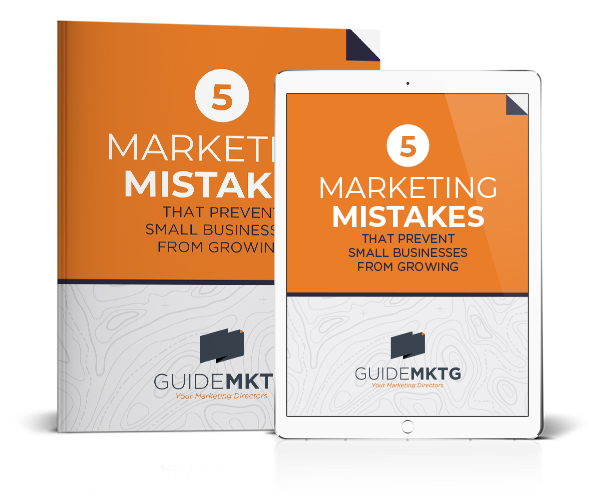To blog or not to blog? That is the question…
If you’ve been in business for more than 5 seconds, someone has probably told you that you should have a blog on your website. Although a good blog strategy can make a huge difference for your small business, a business blog isn’t for everyone. Let’s explore how blogs help your website and your small business so that you can decide if blogging is a good addition to your marketing strategy.
How do blogs help your small business?
There are three main ways blogs help your website and your small business:
- Blogs increase website traffic.
- They showcase your company’s expertise, which builds trust with potential customers.
- Blog content can be repurposed to grow your audience.
Let’s dive deeper into each one so you can better understand how it all works.
Well-Written Blogs Bring Traffic to Your Website
There is a huge misconception, especially in the small business world, about what blogs are and how they help your website.
Instead of breaking it to you gently, I’ll just be blunt: low-quality blog posts are a waste of your time. They will not help your website or your business in any way.
In fact, it might be hurting your business. Content marketing expert Joe Pulizzi says, “Mediocre content hurts your brand more than doing nothing at all.”
Here’s the difference between great blog content and blah blog content:
A good blog post is not: |
A good blog post is: |
|
|
Although writing good blog posts takes considerably more time, they provide more value to the people reading them, they make your business look better, and give you higher chances of showing up near the top of search results.
To write a great blog post that will help your business grow:
- Learn basic SEO (search engine optimization).
- Write about topics related to the problem your business solves.
- Use compelling titles.
- Have a main focus for each post.
- Explain the topic well.
- Keep the content organized and skimmable.
- Include a call to action at the end.
How does blog content increase traffic to your website?
Over time, your high-quality blog content will gain shares, comments and backlinks. That interaction tells search engines that it is valuable content they should pay attention to. Little by little your blog posts will move up the ranks of the search engine results page.
Once your relevant content makes it near the top, when your ideal client searches for topics you’ve written about, they’ll find you. That means search engines will be sending people to your website for free. More eyes on your website equal more leads for your business.
Your call to action at the end of the blog post should be an invitation to interact with your business on a deeper level, whether that is by scheduling a call or getting a free download in exchange for a valid email (we call these lead generators). The more of your website traffic you can convert into warm leads, the more your business grows.
Accurate Blogs Prove Your Expertise
Chances are, you are a small business owner because you are really good at something, arguably better than anyone else in your area. Blog posts are a vehicle to show off your expertise online.
An accurate and well-researched blog is more than just a source of information, it is a testament to your credibility.
When potential customers, and even colleagues in your field, set out to find information about your area of expertise and find you in their search results, they will develop a deeper level of trust in your brand and your business.
Even if your blog posts don’t make it to the top of Google search results, you can share your blog posts on your social media accounts and other marketing channels to showcase your expertise and attract potential clients. This will increase your online visibility and grow your audience at the same time.
Blogs Can be Repurposed
We all know that when it comes to marketing a business online, content is king. Unfortunately, creating all that content can be exhausting. One of the great things about high-quality blog posts is that you can repurpose and reuse them time and time again.
You can turn blog content into:
- Social media posts
- Emails
- YouTube videos
- Podcast episodes
The list of ways to repurpose blog content could truly go on and on.
Plus, unlike social media, blog posts don’t disappear. Once published they stay on your website for the lifetime of your site. Anytime people search the question your blog post answers, you will show up somewhere in the search results.
That also means that you can share something you wrote years ago on social media and it will still seem relevant and new. (You can always go back to old blog posts to edit the content and add new research and information when necessary.)
You can also use blog posts to run your business more efficiently.
If you write a comprehensive blog post about something your business offers, you can send the link to customers anytime they have a question about that service.
You can use blog posts to answer frequently asked questions so that new customers can find all the answers they need when they need them. You can also write a series of nurture emails with links to your blog posts to share important information with new customers.
Should All Small Businesses Have a Blog?
Although there are numerous benefits of blogging, not all small business owners need a blog.
If you are in the beginning stages of your business, your time is probably better spent fine-tuning your products and services and building relationships with potential clients. Face-to-face interactions will give you more accurate insight into what your ideal client needs. Plus, those relationships are more likely to turn into sales than a mostly passive email sales funnel.
At the same time, you don’t need to be making millions in revenue before you add blogging to your marketing strategy.
Before you start blogging you should:
- Know who your target market is.
- Know what problem your company solves.
- Have a proven product or service.
- Have a sales funnel that converts well.
Although it is great for any business’ credibility to create quality content that keeps readers engaged, if you don’t have a way to convert those readers into paying customers, you won’t be able to afford to keep blogging for long. Blogging for business is most effective when you already have an established business to promote.
Will all of my blog content rank?
No, especially not right away. Blogging, SEO, and ranking in Google search results for relevant keywords all take time.
There are also over 200 factors that Google Search looks at when ranking posts, many of which you can’t fully control. So, no- you shouldn’t expect to rank for every single blog post you write.
Your primary goal for blogging (especially in the short term) should be to build brand awareness, provide value to your current customers and repurpose your content for social media marketing and email marketing. Getting your blogs to rank is the icing on the cake.
Blogging for Busy Small Business Owners
Chances are, if you are already running a thriving small business that you want to scale, you don’t have a lot of time left for blog content creation. If you want to take advantage of the benefits of blogging without actually writing the blogs, contact Guide MKTG today. We can help you craft a comprehensive marketing strategy to grow your business and write all the necessary content for you.





